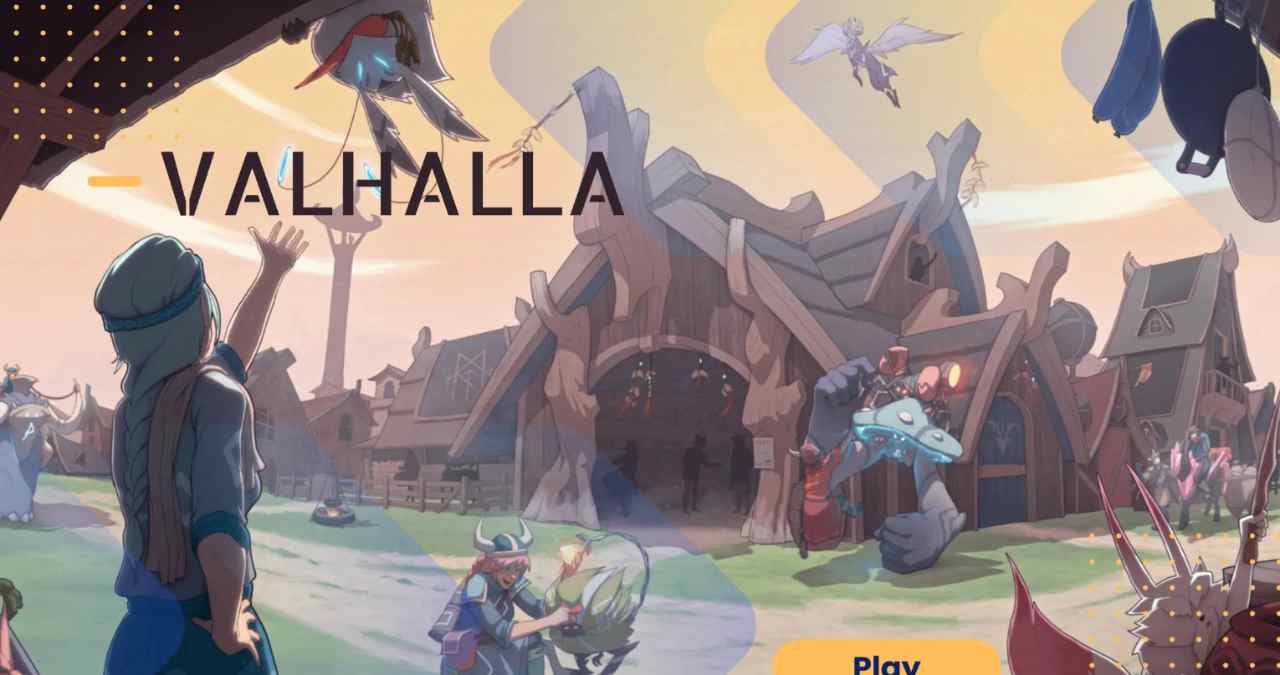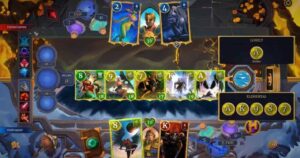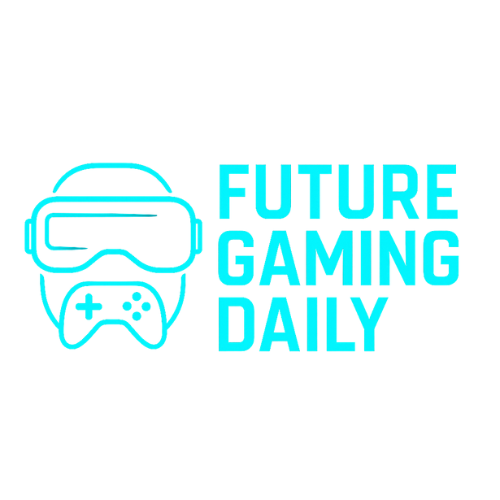After a long lead-up of previews and incremental updates, Valhalla has moved into a new phase: it’s now playable. The game, which blends traditional MMORPG structures with blockchain-backed systems, is rolling out early access features for players to engage with core mechanics, especially its PvP-centered combat and companion customization.
The launch builds on the game’s alpha roadmap, with new UI improvements, updated arenas, and economic layers starting to take shape. It’s not a full release, but what’s available gives a clearer look at how Valhalla plans to differentiate itself in the Web3 MMO space.
Arena battles and stat-based progression define early gameplay
Combat in Valhalla currently revolves around structured PvP matches in a small arena format. Players control Champions, each with gear, stats, and special abilities. The system rewards timing and spacing, but also relies heavily on preparation with proper gear loadouts and companion selection influence performance as much as raw player skill.
The arena is turn-based with real-time elements, borrowing mechanics from tactics RPGs while simplifying inputs for a quicker loop. Matches are short, but progression adds long-term depth. Winning grants loot that ties into your character’s build, creating a cycle of combat, extraction, and stat tuning.
What’s notable is that there’s no open world yet. The current version focuses on tightly scoped match-based play, which helps stress test systems like balance and UI before broader features roll out.
Companion NFTs offer gameplay customization, not just cosmetics
Valhalla uses blockchain tech in ways that impact moment-to-moment play. One of the key features is the companion system. Companions are on-chain assets, each with their own traits, appearances, and battle roles. These creatures are more than visual add-ons, they provide stat boosts and can be leveled up across sessions.
The customization system ties directly to progression. Players can tailor their companions to reinforce a specific playstyle, whether it’s offensive burst or defensive sustain. This gives the NFT layer a mechanical purpose without turning the game into a pay-to-win scenario. You can earn, upgrade, or trade companions, but gameplay is still dependent on how you deploy them.
From a design standpoint, this system mirrors pet mechanics in classic MMOs, but with digital ownership baked in. The difference here is permanence, companions persist on-chain and retain their attributes across seasons and builds.
On-chain progression creates a player-owned economy
The economic layer of Valhalla is still evolving, but even in alpha, some elements are active. Loot is tied to smart contracts, meaning items can be minted, traded, or sold as NFTs. This gives value to in-game achievements beyond cosmetics or badges.
What makes this approach distinct is how rewards are earned through gameplay, not random drops or token farming. Perform well in the arena, and you’re directly rewarded with loot that can be extracted or upgraded. It’s a loop familiar to extraction shooters, but applied to a fantasy MMO setting with layered strategy and blockchain verification.
There’s also a long-term vision of seasonal resets and item rarity inflation control. This helps avoid bloat and keeps the economy circulating, something many early Web3 games failed to balance.
Next steps and expanding beyond PvP
So far, Valhalla is a PvP-first experience. But the roadmap includes plans for PvE raids, expanded exploration zones, and social hubs. Those features are still under development, but the devs have committed to iterative releases and feedback loops with the current alpha community.
In the short term, expect more companion types, balance tweaks, and tweaks to reward pacing. The alpha is now about gathering data, tuning the economy, and refining the gameplay loop before the full MMO structure is in place.
Valhalla isn’t trying to be all things at once. Right now, it’s a focused Web3 arena brawler with layered progression and some early infrastructure for a player-owned world. Whether that scaffolding supports a full MMORPG later remains to be seen, but the current build lays out the mechanics clearly.
Web3 Analyst & Play Blockchain Games Guide
CryptoKit breaks down Web3 gaming like it’s second nature. From tokenomics to airdrop strategies, she turns blockchain chaos into clear, actionable advice for players who want to win more than XP.




